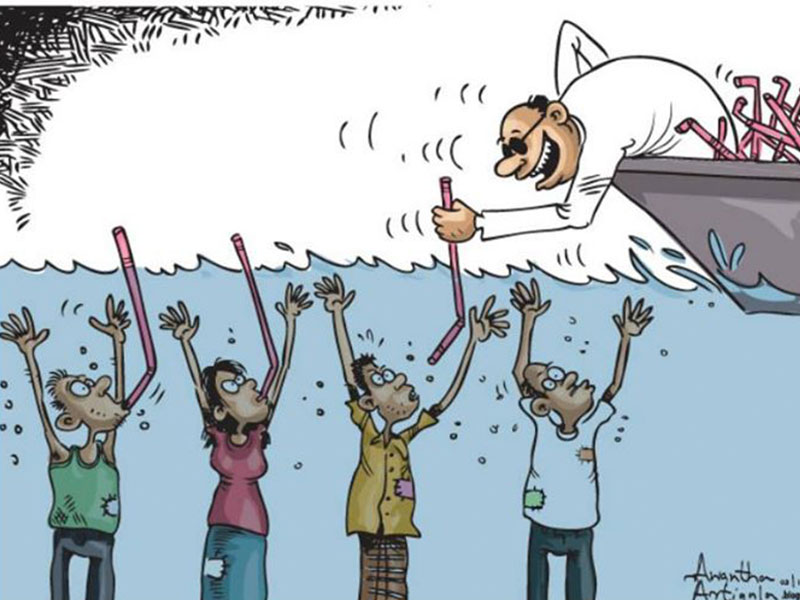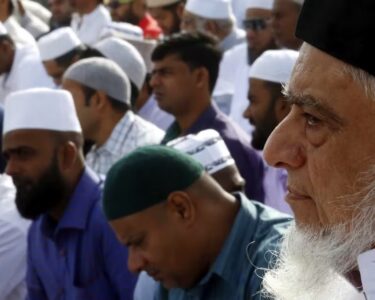COLOMBO, Sri Lanka – Despite President Wickremesinghe’s pronouncements of economic progress, Sri Lanka’s recovery remains precariously perched on a razor’s edge of rising inequality and simmering social discontent. The International Monetary Fund (IMF) warns of a potential eruption of unrest fuelled by declining incomes, crippling inflation, and delayed reforms.
This warning echoes starkly amidst alarming data from the United Nations Development Programme (UNDP). Their report paints a chilling picture of Sri Lanka as one of Asia-Pacific’s top five most unequal nations, with the wealthiest 1% hoarding a staggering 31% of the national wealth. Meanwhile, the bottom 50%, despite contributing significantly to the national income, are relegated to a paltry 4% share.
This chasm in wealth translates to real-world hardships. Millions struggle to afford basic necessities, with 70% facing difficulty accessing a healthy diet and 50% grappling with micronutrient deficiencies. Household debt is spiraling, with over a third of the population caught in a web of financial vulnerability.
The consequences of this inequality are far-reaching, causing a downward spiral in consumer demand and purchasing power. This weakens the already fragile economic recovery, threatening further contraction and exacerbating social tensions.
The potential IMF debt deals and tax hikes like VAT increases loom large, casting a long shadow over the future. Experts fear these measures could exacerbate the inequality crisis, pushing the fragile peace over the edge and igniting widespread unrest.
The call for action is clear. UNDP urges a strategic shift, prioritizing human development, recalibrating growth strategies, and bolstering governance and civic engagement. Social protection programs and sustainable development are crucial to addressing the widening gap and ensuring a stable future for Sri Lanka.
Sri Lanka’s future hangs in the balance. Ignoring the mounting discontent and failing to address the profound inequities could unleash a wave of unrest, jeopardizing the nation’s fragile recovery and plunging it into deeper turmoil. The time for action is now.
Key Figures:
Sri Lanka’s economy is projected to contract by 3.6% in 2023.
Inflation is expected to reach 4.8% by year-end and 6.6% in 2024.
70% of Sri Lankans struggle with food affordability.
50% of the population suffers from micronutrient deficiencies.







